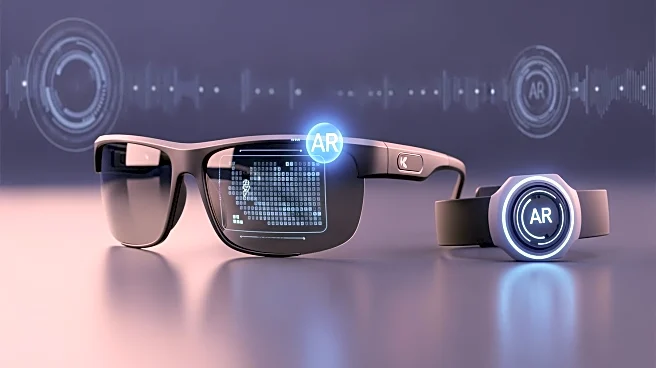What's Happening?
Meta has unveiled a new consumer-facing smart glasses model featuring a built-in display and wristband controller. This announcement marks a shift from developer demos to retail-ready hardware, with analysts predicting a significant increase in headset
shipments this year. The move is expected to accelerate AR adoption, raising questions about costs, privacy, and app-store dynamics. Meta's entry into the consumer market could force competitors to expedite their own product launches.
Why It's Important?
Meta's smart glasses represent a pivotal moment in the AR industry, potentially driving faster market expansion and increased competition. The hardware shift from prototypes to product cycles necessitates new app economies, retail logistics, and advertising formats. Consumers may benefit from earlier access to AR applications, such as heads-up maps and shopping overlays, but will also face privacy challenges and higher price points. The success of Meta's smart glasses could influence the future of AR technology and its integration into daily life.
What's Next?
The launch of Meta's smart glasses is likely to prompt reactions from industry competitors, including Amazon and Samsung, who may accelerate their own AR product developments. Developers will need to adapt quickly to the new retail product, focusing on distribution, battery life, and software rules. Investors and advertisers will be watching closely to see if Meta's hardware can generate recurring revenue beyond initial device sales.
Beyond the Headlines
Meta's move into consumer AR hardware raises important ethical and privacy considerations. As AR devices become more prevalent, the collection and use of personal data will be scrutinized, potentially leading to new regulations and industry standards. The balance between innovation and privacy will be crucial in determining consumer trust and acceptance of AR technologies.

















